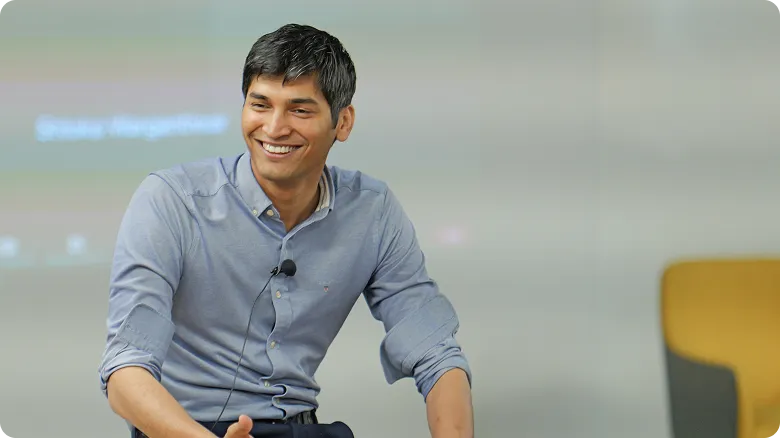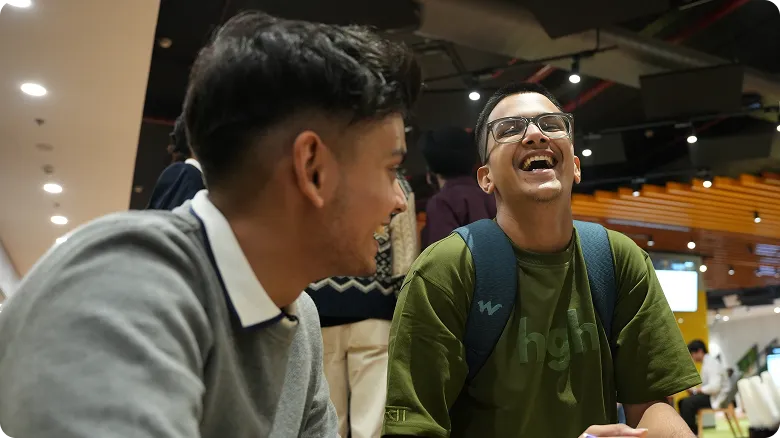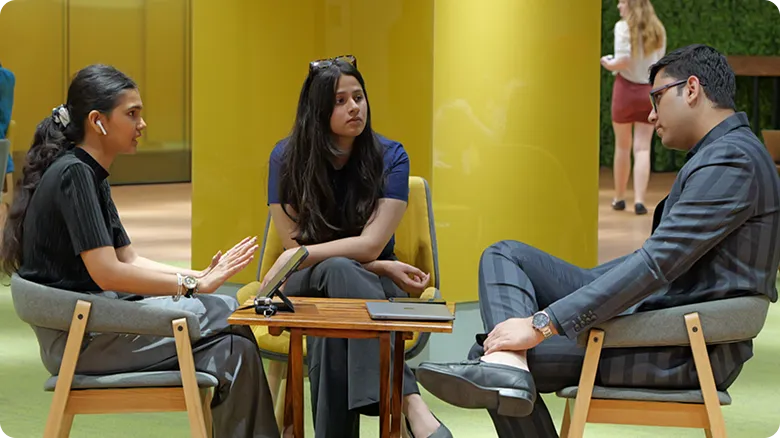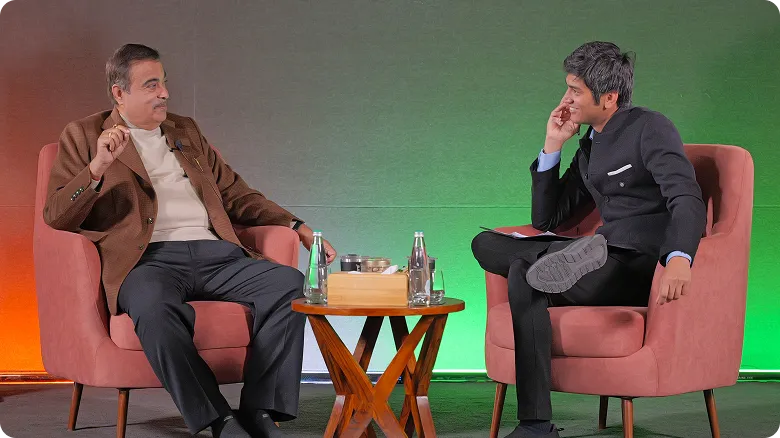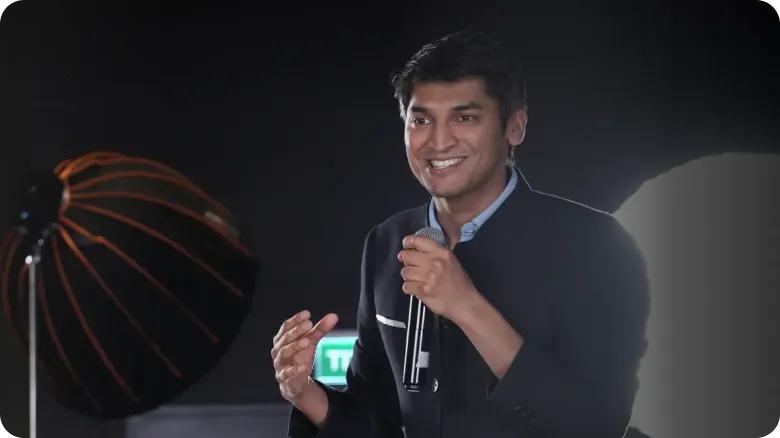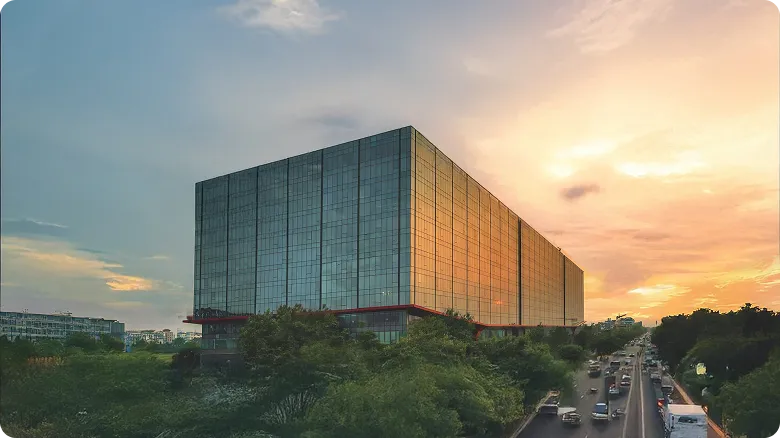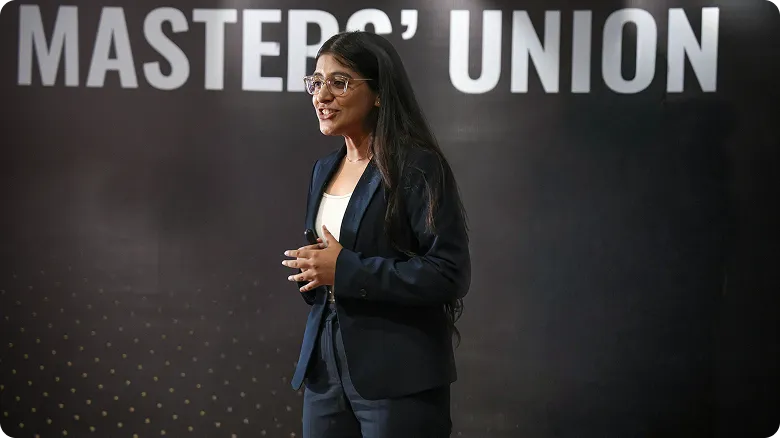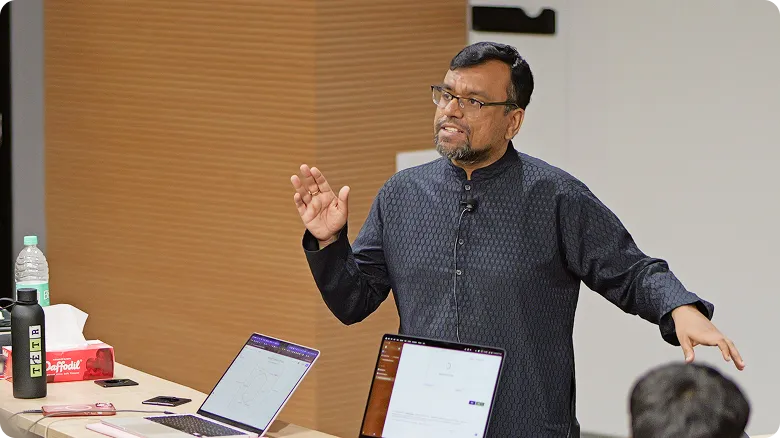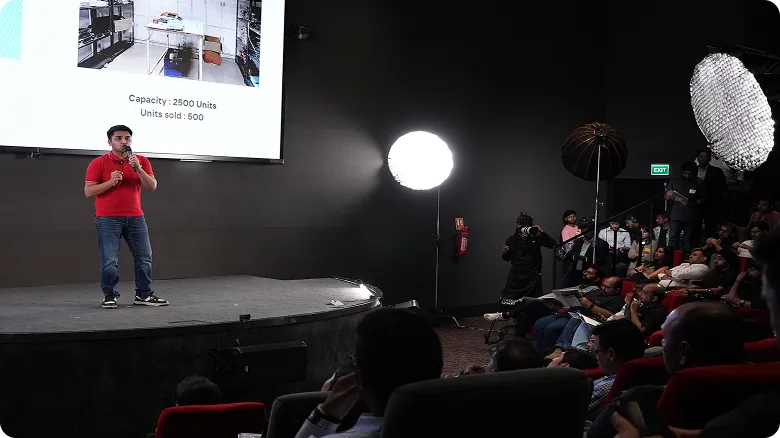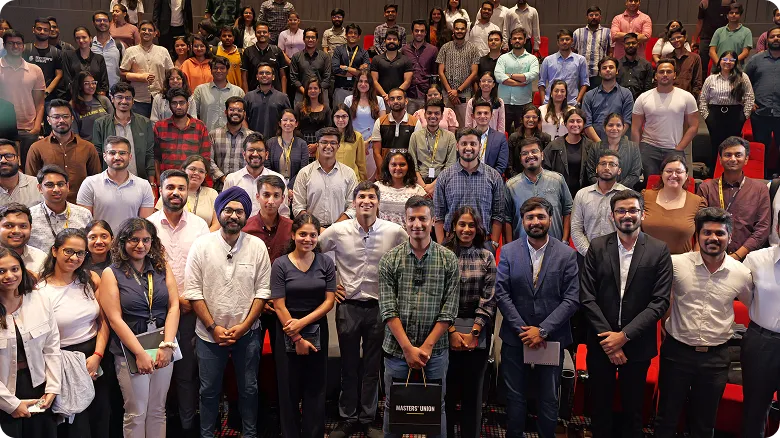Undergraduate
Undergraduate (Global)
Postgraduate
PGP in Technology and Business Management
PGP in Technology & Business Management
(Young Leaders Cohort)
PGP in Human Resources & Organisation Strategy
PGP in Sports Management & Gaming
PGP in Applied AI & Agentic Systems
PGP in UI/UX & Product Design
PGP in Sustainability & Business Management
PGP Bharat
Executive
Family Business
Careers
Innovations
Faculty
MU Ventures
Enterprise Education
Student Life
Jobs
Become a Master
events
For Companies
Blog
Business
OYO’s Playbook For Building A 120-Day Profit Model
May 21, 2025
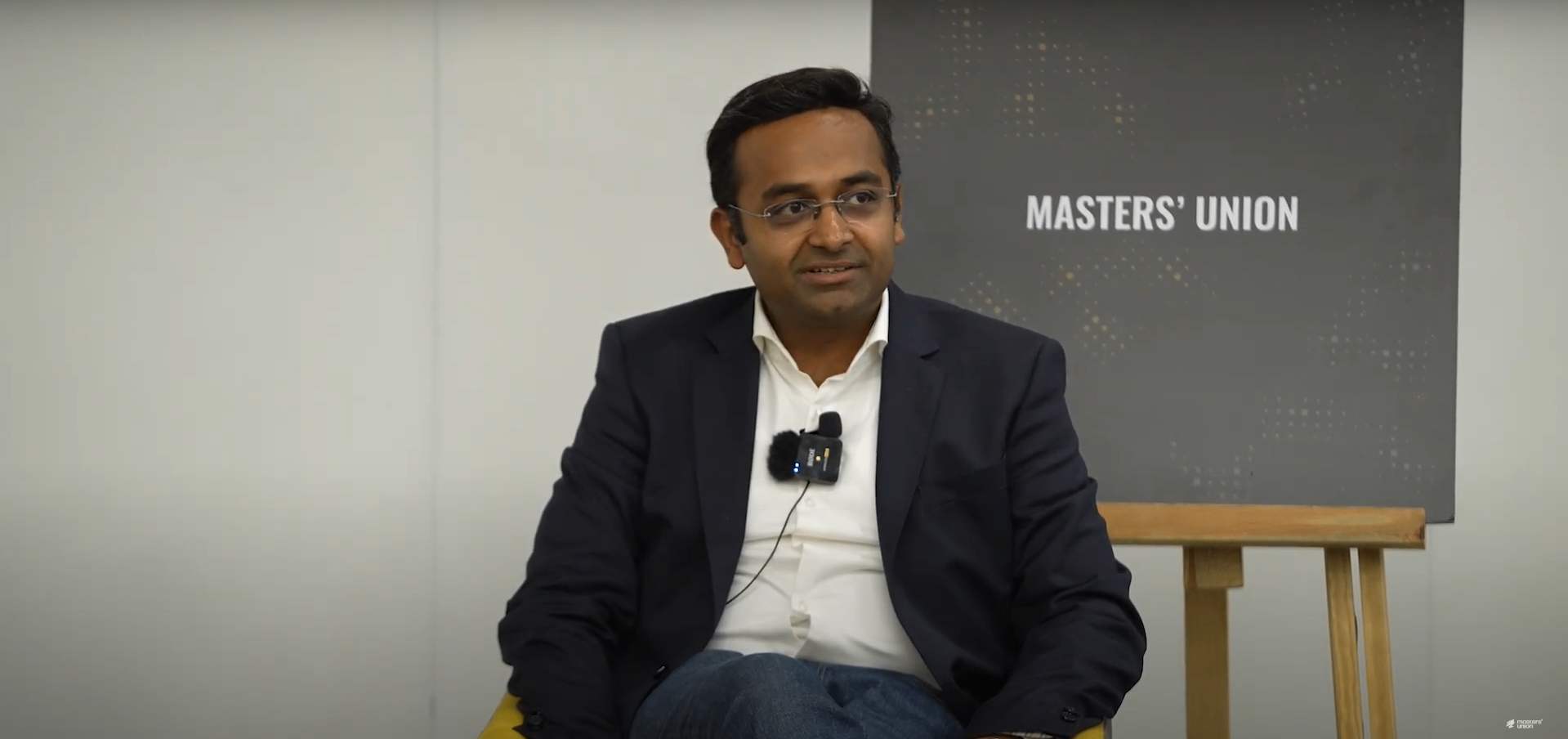
“I come from a family of doctors, so naturally, I chose finance,” smiles Abhishek Gupta, Former Group CFO at OYO, one of India’s most prominent startups.
It’s a tongue-in-cheek remark, but behind it is a mindset familiar to many at Masters’ Union who carve out a contrarian path, especially when the stakes are high.
Over the past few years, Abhishek has quietly played a pivotal role in reshaping OYO’s operation, and led its expansion, fundraising, maintaining capital discipline,and building a durable talent engine. In a rare inside look, he opens up about what it takes to scale a consumer tech company in a macro environment, and why finance, at its core, is about designing systems for long-term value creation.
Want to watch the video instead?
Abhishek Gupta, Former CFO of OYO, joined us on campus for a fireside chat.
Watch the podcast to learn how digital infrastructure, capital discipline, and empowered leadership will define the next decade of tech-driven hospitality.
Why Hospitality Needs Digital Payments
India’s digital payments revolution has been widely written about, but Abhishek sees it not just as a fintech success story, but as a hospitality enabler.
“The reduction in transaction friction, the ability to monitor every rupee, and the behavioural shift towards transparency, has completely changed the game for operators like us,” he says.
For OYO, this transformation meant previously unbanked or unorganised hotel owners could now be brought into a digital ecosystem. It allowed the company to implement dynamic pricing, instant payouts, real-time performance dashboards, and unified supply chain operations. All this was previously unimaginable at scale.
Crucially, digital payments helped bridge the trust gap between OYO and property owners. In a business where partners often feared delayed payments and opaque terms, this infrastructure brought much-needed credibility.
Fundraising Today: When Capital Gets Expensive, Discipline Becomes Strategy
Abhishek has weathered both the sugar rush of easy capital and the sobering slowdown of a tight funding winter. That dual experience informs his current view.
He emphasises that today’s fundraising narrative is less about hyper-growth and more about strategic clarity. Investors are asking sharper questions, favouring businesses that show a clear path to profitability, rather than vague promises of future scale.
OYO responded by re-orienting its internal metrics to focus not just on room nights and GMV, but on property-level profitability, contribution margins, and asset lifetime value. It’s a level of rigour that reflects his belief that finance leaders must act like business architects, not just bookkeepers.
Building a Model That Works Across Markets
One of OYO’s most misunderstood attributes is its global reach. While many startups fail in international expansion, OYO has persisted with learnings to show for it.
Abhishek is candid about past mistakes. “We tried entering too many markets, too fast. The lack of focus created execution debt.” But what followed is more instructive: a period of consolidation, intense learning, and a market-specific strategy playbook.
“Japan needed a partner-first approach. Europe required regulatory navigation. The UAE was about price positioning and branding. Each geography forces you to unlearn and rebuild your assumptions.”
This localised and built on modular tech approach has now become a repeatable growth model for OYO as it now scales on geographies where infrastructure, talent, and demand dynamics align.
Leadership: Why Trust and Talent Are the Real Multipliers
Despite his CFO title, Abhishek spends a large chunk of his time on what he calls “people design.” Not HR, but the architecture of talent, which is about who you hire, how you empower them, and what happens when they fail.
“We’ve moved from a hero-founder culture to a distributed leadership model. That shift is critical for long-term resilience.”
OYO’s internal culture is now built on a few hard principles of hiring people who are smarter than you. Give them real power. Support them even when they make mistakes.
Abhishek draws a clear line here. He shares that most companies fail not because the market shifts, but because they react poorly. Empowered teams respond better and course-correct faster. It’s a lesson especially relevant for those building or joining startups today: culture is not a feel-good concept, it’s a strategic moat.
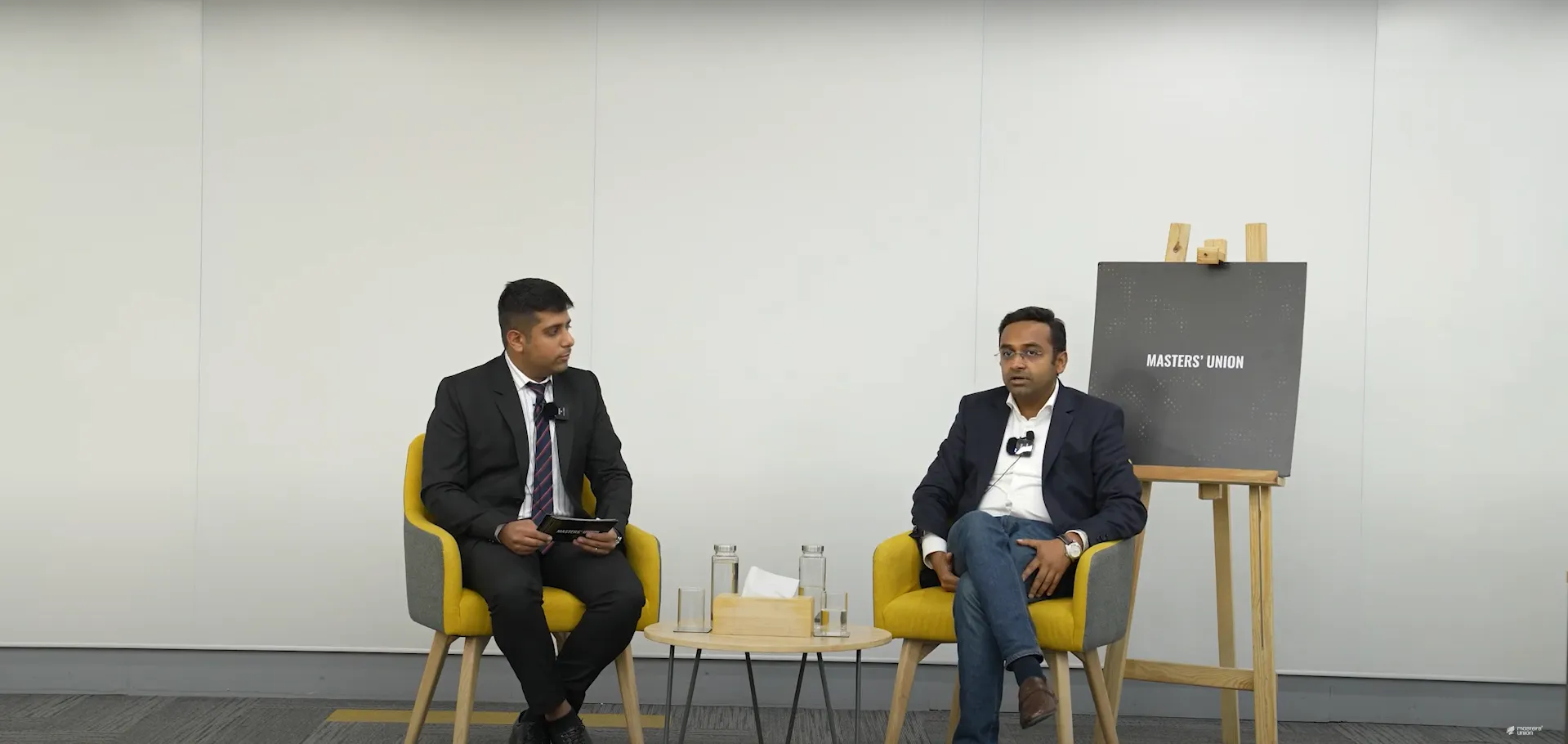
Profitability ≠ Slowing Down
Perhaps the most interesting insight Abhishek shares is that at OYO, growth and profitability are not mutually exclusive.
“In our model, when we grow right, we become more profitable. The tech improves margins. The data improves pricing. The ops improve asset efficiency”, he shares.
This isn’t just CFO spin. It’s a reflection of OYO’s evolved thesis. Properties that come on board now are vetted not only for location or price point, but for profit potential within 90–120 days. The company actively avoids taking on unviable inventory, a sharp contrast to its earlier growth-first days.
Final Word: What Future Leaders Should Take Away
Abhishek trajectory from a finance-first thinker in a family of doctors to one of the key drivers behind OYO’s global ambitions, offers plenty for students and startup enthusiasts to chew on.
At its core, his journey is a reminder that the most transformative roles in business today are not defined by job titles, but by a combination of adaptability, insight, and execution intelligence.
For aspiring founders and business leaders at Masters’ Union, Abhishek lens offers a framework worth remembering:
-
Build on infrastructure shifts (like digital payments)
-
Prioritise capital efficiency over cheap scale
-
Expand with precision, not bravado
-
Build teams that outperform you
Treat profitability as a design principle, not a constraint
As OYO finds its second wind in a more mature, grounded phase of growth, its CFO is clear-eyed about the road ahead. Abhishek is confident that they are not just managing a portfolio of hotels, while simultaneously shaping the infrastructure for hospitality 2.0.

